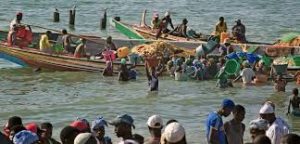The new protocol covers a period of 6 years and will offer EU vessels the possibility to fish 3300 tons of tuna and tuna-like species as well as 750 tons of hake per year in the Gambian waters.

Last Friday, the EU and The Republic of The Gambia signed a new Sustainable Fishing Partnership Agreement (SFPA) protocol, 22 years after the previous protocol expired. Both parties welcome the start of a new cooperation period in the fisheries sector.
This fisheries agreement allows EU vessels to fish in the Gambian waters and thus, extends the network of tuna fisheries agreements in West Africa.
The new protocol covers a period of 6 years and will offer EU vessels the possibility to fish 3300 tons of tuna and tuna-like species as well as 750 tons of hake per year in the Gambian waters.
In return, the EU will pay The Republic of The Gambia a financial contribution of 550 000 € per year.
According to a press release from the EU, half of this yearly contribution will be used to strengthen the sustainable management of fisheries resources and the development of the Gambian fishing sector.
The agreement covers the cooperation in the fight against illegal, unreported and unregulated fishing (IUU) and the promotion of the blue economy, including aquaculture.
A special support will be given to the artisanal fisheries sector. Furthermore, Gambia has committed to become a member of the International Commission for the Conservation of Atlantic Tunas (ICCAT).
The new protocol will enter into force when the necessary legislative procedures for its conclusion have been completed.
Meanwhile, since the inception of the administration of President Adama Barrow, this is the second fishing agreement to be signed with the small country.
The first was with Senegal that gave their fishermen exclusive rights to Gambian waters. Critics say the administration is giving country’s resources for free to partners, causing huge depletion of its fish stock in the sea.
According to Green Peace International, EU and Chinese ships are notorious of illegally fishing in West African waters.

